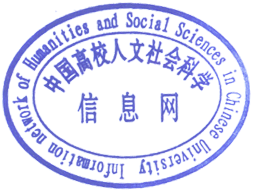关 键 词 :论语;孝道;孔子;思想学科分类:文学--中国古代文学
“孝”是一种以血亲为基础的伦理道德,是中国传统文化中的一个重要组成部分。孔子以春秋以前的孝思想为基础,对孝的内涵进行了进一步地充实,它把孝从一种具有宗教色彩的祭祖仪式中分离开来,变成了一种解决家庭伦理问题的行为规范,从而完成了由孝道伦理到家庭伦理的转型。孔子将“孝”与其它道德目的相结合,对“孝”作了系统的阐释,并对“孝”作了正确的定位。孔子的“孝”观对于维护社会安定、家庭和睦起到了很大的推动作用。因此,弘扬孔子的孝道精神,对其进行批判继承,创新发展,时至今日,仍然具有重大的现实意义。
Filial piety is a kind of ethics based on consanguinity, which is an important part of Chinese traditional culture. Based on the thought of filial piety before the Spring and Autumn period, Confucius further enriched the connotation of filial piety. It separated filial piety from a religious ancestor worship ceremony and turned it into a code of conduct to solve family ethical problems, thus completing the transformation from filial piety ethics to family ethics. Confucius combined filial piety with other moral purposes, made a systematic interpretation of "filial piety", and made a correct orientation of "filial piety". Confucius' concept of filial piety has played a great role in maintaining social stability and family harmony. Therefore, it is still of great practical significance to carry forward Confucius' spirit of filial piety, critically inherit it, innovate and develop it.

